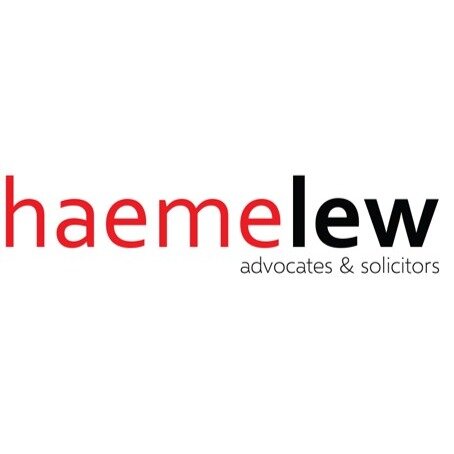Best Due Diligence Lawyers in Kuala Lumpur
Share your needs with us, get contacted by law firms.
Free. Takes 2 min.
List of the best lawyers in Kuala Lumpur, Malaysia

About Due Diligence Law in Kuala Lumpur, Malaysia
Due diligence is a crucial process when engaging in business transactions or investments in Kuala Lumpur, Malaysia. It refers to the thorough investigation and research of the legal, financial, and other relevant aspects of a potential business deal or investment to ensure its viability and minimize risks.
Why You May Need a Lawyer
While due diligence can be conducted by individuals or companies themselves, it is often advisable to seek the assistance of a lawyer experienced in Kuala Lumpur's legal system. A lawyer can provide valuable guidance, ensure compliance with local laws and regulations, and protect your interests throughout the due diligence process.
Local Laws Overview
Kuala Lumpur, Malaysia has several laws that are particularly relevant to due diligence:
- The Companies Act 2016: This law governs the formation, operation, and dissolution of companies in Malaysia, including regulations regarding financial disclosures and corporate governance.
- The Contracts Act 1950: This law outlines the general principles of contracts, which play a significant role in due diligence, as it involves reviewing and understanding contractual obligations and liabilities.
- The Securities Commission Act 1993: This act regulates securities and capital markets in Malaysia, including provisions related to disclosures, prospectus requirements, and investor protection.
Frequently Asked Questions
1. What is the purpose of due diligence?
Due diligence aims to assess the risks and potential benefits associated with a business transaction or investment. It helps parties make informed decisions, identify potential legal issues, uncover hidden liabilities, and verify the accuracy of representations made by the other party.
2. How long does the due diligence process usually take?
The duration of the due diligence process can vary depending on the complexity of the transaction and the availability of information. It can range from a few weeks to several months. It is essential to allow sufficient time to conduct a thorough analysis and ensure all necessary information is considered.
3. What documents do I need for due diligence?
The specific documents required for due diligence can vary depending on the nature of the transaction. However, commonly requested documents include contracts, financial statements, tax returns, licenses and permits, employment agreements, intellectual property records, and any relevant legal or court proceedings.
4. What are some red flags to look out for during due diligence?
During due diligence, it is crucial to be vigilant and look for potential red flags that may indicate risks or legal issues. Some common red flags include inconsistent financial records, pending litigation or disputes, undisclosed liabilities, regulatory non-compliance, and any discrepancies between provided information and public records.
5. Can due diligence eliminate all risks?
Due diligence aims to mitigate risks by providing valuable information and insights. However, it cannot eliminate all risks entirely as there may be unforeseen factors or changes in circumstances. The purpose of due diligence is to minimize risks to an acceptable level and make informed decisions based on the available information.
Additional Resources
If you require further assistance or information on due diligence in Kuala Lumpur, Malaysia, consider reaching out to the following resources:
- Malaysian Bar Council: The official body of legal professionals in Malaysia that can provide referrals to qualified lawyers specializing in due diligence.
- Securities Commission Malaysia: The regulatory body overseeing securities and capital markets, which can provide guidance on due diligence requirements in the financial sector.
- Malaysian Investment Development Authority (MIDA): This agency promotes and facilitates investments in Malaysia and can provide information on due diligence requirements for foreign investors.
Next Steps
If you find yourself needing legal assistance in due diligence matters in Kuala Lumpur, Malaysia, consider taking the following steps:
- Identify your specific needs and concerns related to due diligence.
- Research and consider potential lawyers with expertise in due diligence in Malaysia.
- Arrange consultations with selected lawyers to discuss your requirements and evaluate their suitability.
- Select a lawyer who understands your needs and has relevant experience.
- Engage the chosen lawyer to guide you through the due diligence process and protect your legal interests.
Lawzana helps you find the best lawyers and law firms in Kuala Lumpur through a curated and pre-screened list of qualified legal professionals. Our platform offers rankings and detailed profiles of attorneys and law firms, allowing you to compare based on practice areas, including Due Diligence, experience, and client feedback.
Each profile includes a description of the firm's areas of practice, client reviews, team members and partners, year of establishment, spoken languages, office locations, contact information, social media presence, and any published articles or resources. Most firms on our platform speak English and are experienced in both local and international legal matters.
Get a quote from top-rated law firms in Kuala Lumpur, Malaysia — quickly, securely, and without unnecessary hassle.
Disclaimer:
The information provided on this page is for general informational purposes only and does not constitute legal advice. While we strive to ensure the accuracy and relevance of the content, legal information may change over time, and interpretations of the law can vary. You should always consult with a qualified legal professional for advice specific to your situation.
We disclaim all liability for actions taken or not taken based on the content of this page. If you believe any information is incorrect or outdated, please contact us, and we will review and update it where appropriate.
















